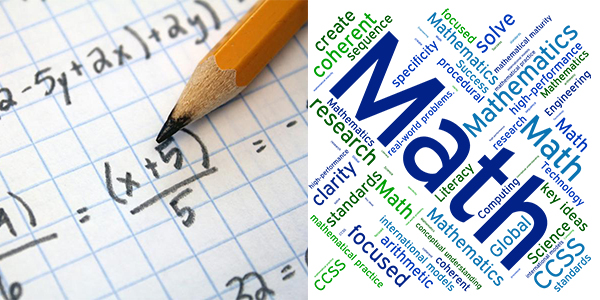Career Definitions – MATHEMATICS
[ads2]
ACTUARIAL SCIENCE (DEG/PG)
MATHEMATICS – It is a field dealing with statistical, mathematical and financial calculation involving probability of payments, contingencies in pension and insurance palms such as insurance against losses arising from death, disability, sickness and unemployment and determine the proper basis and methods for valuing liabilities and maintaining permanent financial stability of insurance & pension organisation.
[divider style=”solid” top=”20″ bottom=”20″]
ALGEBRA (M.PHIL)
Branch of ma-thematic dealing with properties of numbers and qualities by means of letters and other general symbols, system of this based on given axioms.
[divider style=”solid” top=”20″ bottom=”20″]
ANALYSIS (M.PHIL)
Branch of ma-thematic analysis concerned with properties of whole calculations of fractions.
[divider style=”solid” top=”20″ bottom=”20″]
APPLIED MATHEMATICS (DEG/PG/PhD)
Those mathematical topic of principal concerns in the resolution of problems in the physical and life sciences, in engineering and technology, in economics, linguistics, phonetics, and music, and indeed in all human endeavor involving problems that are amenable to mathematical analysis and solution.
[divider style=”solid” top=”20″ bottom=”20″]
BIO-STATISTICS (PG)
The branch of statistics that deals with relating to life, vital statistics.
[divider style=”solid” top=”20″ bottom=”20″]
BUSINESS MATHEMATICS (DEG)
The use of fundamental principles of arithmetic in solving mathematical problems that occur in day- to- day business activities.
[divider style=”solid” top=”20″ bottom=”20″]
CONTINUUM MECHANICS (M.PHIL)
Mechanism of a continuous thing, quantity, or substance, a continuous series of elements passing into each other.
[divider style=”solid” top=”20″ bottom=”20″]
MATHEMATICAL ECONOMICS (DEG)
A branch of economics that seeks to verify economic theory and measure economic relationships by statistical and mathematical methods chiefly for the purpose of forecasting future events and choosing desirable policies.
[divider style=”solid” top=”20″ bottom=”20″]
MATHEMATICAL SCIENCE (PG)
The deductive study of shape, quantity, and dependence, the two main areas are applied mathematics and pure mathematics, the former erasing from the study of physical phenomena, the latter involving in the intrinsic study of mathematical structures.
[divider style=”solid” top=”20″ bottom=”20″]
MATHEMATICAL STATISTICS(PG)
Refers to using mathematical techniques for designing and improving statistical methods to obtain and interpret numerical information.
[divider style=”solid” top=”20″ bottom=”20″]
MATHEMATICS(PURE) (DEG/PG/PG DIP/PhD)
The deductive study of shape, quantity, and dependence. The two main areas of mathematics are applied mathematics and pure mathematics, the former arising from the study of physical phenomena. The latter involving the intrinsic study of mathematical structures.
[divider style=”solid” top=”20″ bottom=”20″]
NUMERICAL ANALYSIS(M PHIL)
The branch of mathematics dealing with the development and use of numerical methods for solving problems.
[divider style=”solid” top=”20″ bottom=”20″]
STATISTICS(DEG/PG DIP/PG)
The science dealing with the collection, analysis, interpretation, and presentation of masses of numerical data.
[divider style=”solid” top=”20″ bottom=”20″]
STOCHASTIC(M PHIL)
In econometric s, a formula that describes the relationship between two or more variables and that is tested with actual data. Making statistical allowance for error.





